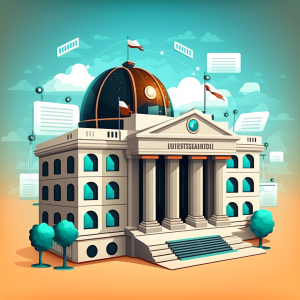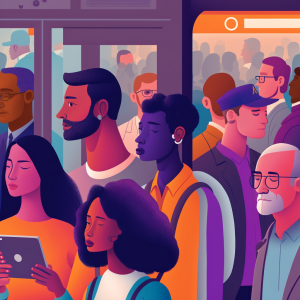As government organizations look for ways to improve efficiency and effectiveness, many are turning to artificial intelligence (AI) to solve complex problems and streamline operations. From automating tasks to analyzing data, AI has the potential to transform the way governments work and serve the public. At OpenWise, we understand the potential of AI in the public sector, and we offer a range of services and solutions to help government organizations leverage this technology.
Introduction: The Adoption of Artificial Intelligence in Government
In recent years, there has been a growing trend toward adopting artificial intelligence in government. From the Federal government to local municipalities, organizations are increasingly using AI to automate tasks, analyze data, and improve decision-making. While the adoption of AI in government has been somewhat slow compared to other sectors, it is beginning to pick up steam as more organizations recognize the potential benefits.
Automating Tasks with Artificial Intelligence
 One of the main ways that governments use AI is to automate time-consuming or repetitive tasks. Government organizations can automate data entry, document processing, and customer service processes using machine learning algorithms. This can help reduce government employees’ workload, freeing them to focus on more complex tasks.
One of the main ways that governments use AI is to automate time-consuming or repetitive tasks. Government organizations can automate data entry, document processing, and customer service processes using machine learning algorithms. This can help reduce government employees’ workload, freeing them to focus on more complex tasks.
For example, the Internal Revenue Service (IRS) has implemented an AI system to process tax returns. By analyzing data from previous tax returns, Rita can automatically identify errors and discrepancies, saving the IRS time and resources. Open-source AI tools such as TensorFlow or Python can be used to build similar systems for automating tasks in government.
Analyzing Data with Artificial Intelligence
Another key area where AI is being used in government is data analysis. With the proliferation of digital data, governments are collecting and storing vast amounts of information on everything from citizen behavior to public health trends. By using AI to analyze this data, governments can gain insights that would not be possible with traditional methods.
For example, AI can analyze traffic patterns data to optimize traffic flow and reduce congestion. By using open-source tools such as OpenCV or Scikit-learn, governments can build machine-learning models to analyze data and identify patterns and trends.
Improving Decision-Making with Artificial Intelligence
AI can also be used to improve decision-making in government. By analyzing data on past decisions and outcomes, governments can use AI to identify patterns and trends that can inform future decision-making. This can be especially useful in complex or high-stakes situations where the stakes are high, and the consequences of a wrong decision can be significant.
For example, AI can be used to analyze data on natural disasters to inform disaster response plans. Using open-source tools such as Weka or Orange, governments can build machine-learning models to analyze data and identify patterns that can help inform response strategies.
Enhancing Citizen Services with Artificial Intelligence

AI can also be used to enhance citizen services. By using AI to automate tasks and provide personalized recommendations, governments can make it easier for citizens to access information and services. This can be especially useful in areas such as healthcare, where AI can be used to analyze data and provide personalized recommendations for treatment.
For example, the US Department of Veterans Affairs has implemented an AI system to help veterans access mental health services. By analyzing data on veterans’ mental health needs, the AI can provide personalized recommendations for treatment, making it easier for veterans to access the care they need. Open-source AI tools such as Kerasor PyTorch can be used to build similar systems for enhancing citizen services in government.
Ethical Considerations of Artificial Intelligence in Government
As with any technology, ethical considerations must be considered when using AI in government. Governments must ensure that AI systems are transparent, accountable, and unbiased and respect citizens’ privacy and rights. It is also crucial for governments to consult with stakeholders and consider the potential impacts of AI on jobs and the economy.
At OpenWise, we are committed to helping government organizations navigate these ethical considerations and ensure that AI is used in a responsible and transparent manner. We work with governments to develop AI strategies aligned with their values and goals and prioritize the needs and interests of citizens.
Conclusion
In conclusion, artificial intelligence has the potential to revolutionize the way government organizations work and serve the public. From automating tasks to analyzing data, AI has the power to improve efficiency and effectiveness and help governments make more informed decisions. While the adoption of AI in government has been somewhat slow compared to other sectors, it is beginning to pick up steam as more organizations recognize the potential benefits. At OpenWise, we understand the value of AI in the public sector, and we offer a range of services and solutions to help government organizations leverage this technology. Contact us today to learn more about how we can support you.

You must be logged in to post a comment.